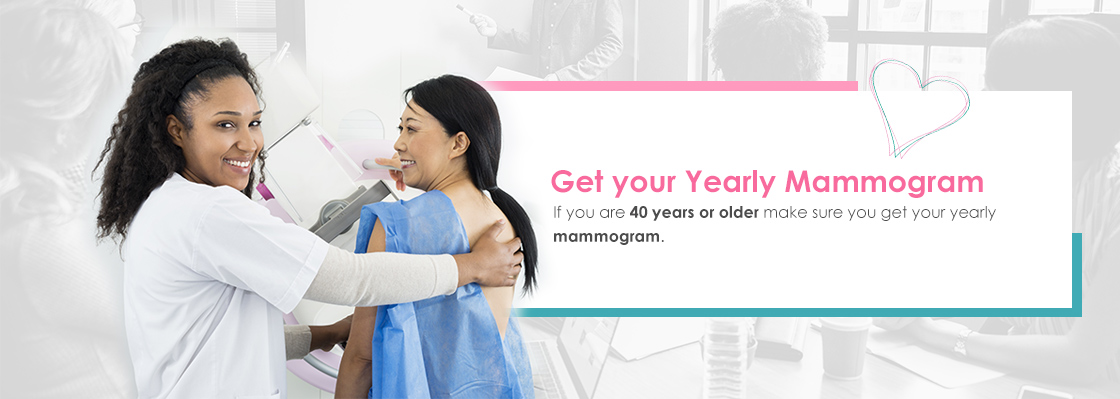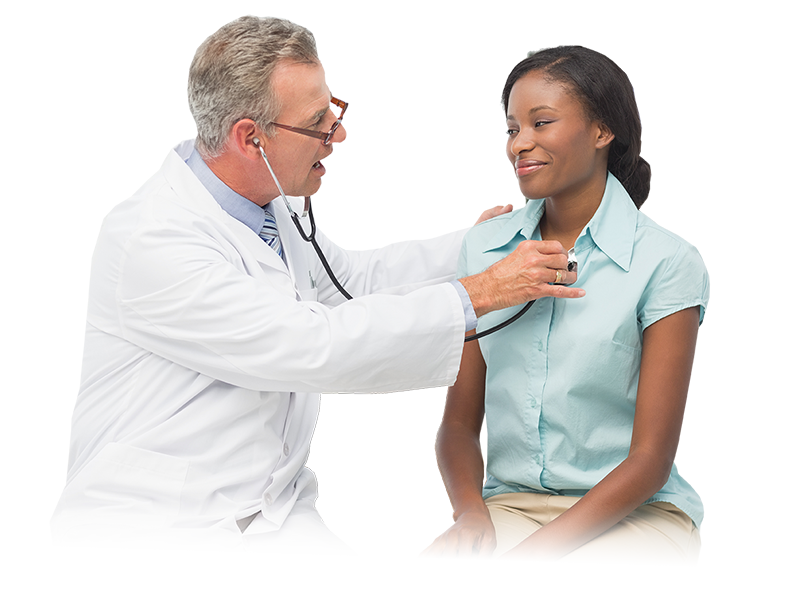Have you had your yearly mammogram?
Getting a yearly mammogram can help find problems early. Call your doctor to get started.

Getting a yearly mammogram can help find problems early. Call your doctor to get started.

We understand mammograms may be uncomfortable. The slight pressure you may feel for a few moments is better than a lifetime of pain that breast cancer may cause.
Researchers have found several risk factors that can make a women more likely to have the disease, but they don’t tell us who will get it. Some of the know factors that can raise your risk:
While you can’t change getting older or family history, there are other known risk factors you can address to try to lower your risk of breast cancer.
Human Papillomavirus (HPV) vaccine – Anyone between the ages of 12 to 26, regardless of their gender, should talk to their doctor about the HPV vaccine. Cervical Cancer at 24 – Have a pap smear every 3 years. Chlamydia – If sexually active get tested every year.

If you are a smoker, ask your doctor about options to help you quit. If you don’t smoke, don’t start, and avoid breathing other people’s smoke.
Sources: American Cancer Society, Centers for Disease Control and Prevention.
Cervical Cancer at 21 – Have a pap smear every 3 years. Chlamydia – If sexually active get tested every year.
Breast Cancer at 40 – Talk to your doctor about getting a mammogram every year.
Breast Cancer at 50 – You should start getting a mamogram everyother year, until age 74.
Colorectal Cancer at 50 – The most common screenings are stool tests and a colonoscopy. Those with a family history of colorectal cancer may need to start screening earlier. Those with a family history of colorectal cancer may need to start screening earlier.
Lung Cancer at 55 – It is one of the few cancers that can often
be prevented. Talk to your doctor.
At 65 – If you have been screened regularly and had normal pap
smear results, continue to talk to your doctor about what screening is
best for you.

Sometimes you need to talk to a nurse when you cannot talk to your doctor. The Advice Nurse helps you with any health problem you or someone in your family has. Click here for more information.
HealthReach 24/7 nurse and doctor advice line, call toll free:
Posted on May 10th, 2019 and last modified on October 21st, 2024.
top